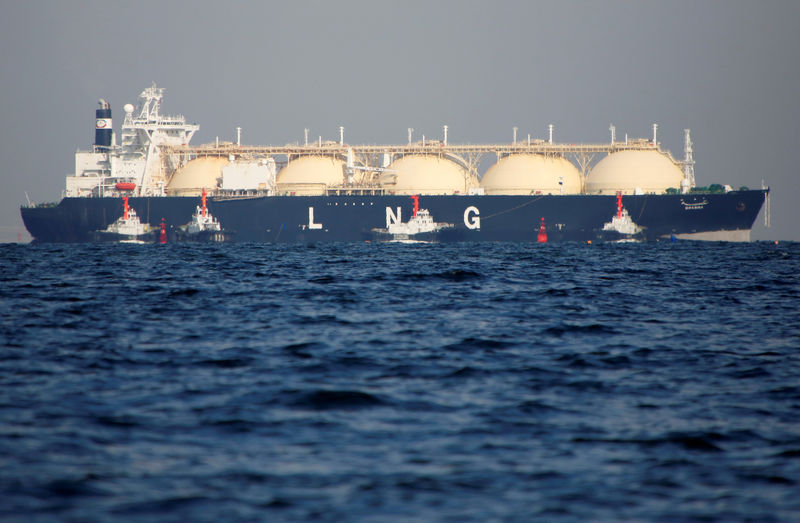By Geoffrey Smith
Investing.com -- European natural gas prices recovered from a weak start on Tuesday as the market absorbed the implications of the European Union's new cap on wholesale prices.
EU energy ministers had finally agreed late on Monday to introduce a cap of €180 a megawatt-hour on the Dutch Title Transfer Facility contract, which serves as a benchmark for northwest Europe, after months of haggling. From February 15 next year, if the TTF trades above that level for three days in a row and is also more than €35/MWh above comparable prices for liquefied natural gas, then the cap will come into force.
The ruling will stay in force for a year.
By 08:10 ET (13:10 GMT), the front-month TTF contract, for delivery in January, was down only 0.7% on the day at €107.8, having earlier tested the €100 level. However, spot prices have weakened in recent days as a cold snap across Europe has receded, and contracts for delivery later next year, which are more affected by the ruling, were firmer. The July contract was up 1.1% at €111.48/MWh.
The move is a calculated gamble by the EU that the bloc will still be able to import enough gas for next winter, covering any shortfall from Russia by using maxing-out pipelines from Norway and North Africa, and covering the rest of its needs on the spot market for liquefied natural gas.
Global prices traded well in excess of that level for weeks at a time this year, and critics of the move say that a cap would have stopped Europe from importing just when it most needed to be bolstering its strategic reserves. Silvia Merler, an analyst with the Bruegel think-tank in Brussels, warned that next year, if prices go above €180/MWh, "LNG will go to anyone willing to pay more than 180 EUR, resulting in a drop of EU LNG imports."
In addition, she said, the move risks moving trade away from the TTF contract to the over-the-counter market, making prices more volatile and less transparent.
However, the EU Commission and a number of member states argued that the economic damage from allowing spot gas prices to rise so high was greater. The TTF has a disproportionate effect on electricity prices because gas-fired power plants commonly set the marginal price for power, which then becomes the price that most generators receive - even wind and solar generators, whose operating costs aren't affected by gas spikes.
"It's hard to say these excessive prices were needed to attract supply. Europe can attract LNG at much lower prices," Nikos Tsafos, an advisor to Greek Prime Minister Kyriakos Mitsotakis, said via social media on Tuesday. He pointed out that LNG imports continued to flow to Europe this year well after the TTF premium relative to LNG prices disappeared.
Aggressive buying by European buyers drove world LNG prices to record highs in the summer. They have since fallen back, but Platts benchmark Japan/Korea Marker price is still around six times the level it was in the years before Russia cut supplies to its European customers, reflecting the fact that structural European demand for LNG has shifted sharply higher. The JKM currently trades around the equivalent of €106.50/MWh.
